Discover SAPIENS: A Podcast for Everything Human
SAPIENS: A Podcast for Everything Human

SAPIENS: A Podcast for Everything Human
Author: SAPIENS
Subscribed: 2,243Played: 21,916Subscribe
Share
© All content included is used with permission or licensed for exclusive use by SAPIENS.
Description
What makes you … you? And who tells what stories and why?
In the fifth season of the SAPIENS podcast, listeners will hear a range of human stories: from the origins of the chili pepper to how prosecutors decide someone is a criminal to stolen skulls from Iceland. Join Season 5’s host, Eshe Lewis, on our latest journey to explore what it means to be human.
SAPIENS: A Podcast for Everything Human, is produced by House of Pod and supported by the Wenner-Gren Foundation. SAPIENS is part of the American Anthropological Association Podcast Library.
For more information, visit sapiens.org
In the fifth season of the SAPIENS podcast, listeners will hear a range of human stories: from the origins of the chili pepper to how prosecutors decide someone is a criminal to stolen skulls from Iceland. Join Season 5’s host, Eshe Lewis, on our latest journey to explore what it means to be human.
SAPIENS: A Podcast for Everything Human, is produced by House of Pod and supported by the Wenner-Gren Foundation. SAPIENS is part of the American Anthropological Association Podcast Library.
For more information, visit sapiens.org
66 Episodes
Reverse
Hosts Kate Ellis and Doris Tulifau explore the perils and possibilities of the kind of fieldwork that defined Margaret Mead as an anthropologist. They provide answers to the Mead-Freeman controversy but also ask the questions that remain.
In this season finale, we circle back to the problems with coming of age … in Samoa and everywhere.
Season 6 of the SAPIENS podcast was co-produced by PRX and SAPIENS, and made possible by a grant from the National Endowment for the Humanities.
We turn from Margaret Mead’s and Derek Freeman’s conflicting accounts of adolescence and sexuality in Samoa to more stories from Samoans themselves.
Author and poet Sia Figiel and activist and anthropologist Doris Tulifau are two Samoan women from different generations. Yet they share a bond and have a similar experience of terrible violence and survival.
They bravely give us a glimpse into the dynamics of power within sexuality and their heartfelt journey of reclaiming it.
Season 6 of the SAPIENS podcast was co-produced by PRX and SAPIENS, and made possible by a grant from the National Endowment for the Humanities.
After Derek Freeman publishes Margaret Mead and Samoa: The Making and Unmaking of an Anthropological Myth, the controversy heats up. Op-eds, documentaries, censure by a leading anthropological organization, and even a debate on the Phil Donahue Show all follow.
Was Margaret Mead, “the grandmother of the world,” wrong? Or was Freeman?
At stake was the heart of an academic discipline and the nature of being human. Mead’s own daughter, Mary Catherine Bateson, launches a defense, and other anthropologists weigh in too.
Season 6 of the SAPIENS podcast was co-produced by PRX and SAPIENS, and made possible by a grant from the National Endowment for the Humanities.
SAPIENS is happy to present this bonus episode from Lost Women of Science about another path-breaking thinker.
In the 1960s, a Black home economist at Howard University recruited kids for an experimental preschool program. All were Black and lived in poor neighborhoods around campus.
Flemmie Kittrell had grown up poor herself, just two generations removed from slavery, and she’d seen firsthand the effects of poverty. While Flemmie earned a PhD from Cornell, most of her siblings didn’t make it to college. One of her sisters died at just 22 years old of malnutrition. And it was the combination of these experiences that drove Flemmie to apply her academic training to help improve the lives of people in her community.
In the early 1960s, Flemmie decided to see what would happen if you gave poor kids a boost early in life, in the form of a really great preschool. Every day for two years, parents would get free childcare, and their kids would get comprehensive care for body and mind—with plenty of nutritious food, fun activities, and hugs. What kind of difference would that make? And would it matter later on?
The first missionary arrived in Samoa in 1832, almost a century before Margaret Mead set out to study the culture of the islands. By the time she arrived, the church had been a central part of Samoan life for generations.
In this episode, Doris Tulifau explores how Christianity and colonization complicate Mead’s—and her critic Derek Freeman’s—conclusions and continue to shape Samoan identity today.
Season 6 of the SAPIENS podcast was co-produced by PRX and SAPIENS, and made possible by a grant from the National Endowment for the Humanities.
In January 1983, the front page of The New York Times read: “New Samoa Book Challenges Margaret Mead’s Conclusions.”
Anthropologist Derek Freeman had been building his critique of Mead for years, sending her letters and even confronting her in person. Freeman’s resulting book, Margaret Mead and Samoa: The Making and Unmaking of an Anthropological Myth, was published five years after Mead died.
Who was Freeman and why did he take such issue with Mead’s work in American Samoa?
Season 6 of the SAPIENS podcast was co-produced by PRX and SAPIENS, and made possible by a grant from the National Endowment for the Humanities.
Sparked by a provocative encounter in American Samoa, Doris Tulifau explores modern-day Samoan attitudes toward Margaret Mead. With a mix of voices and opinions, we encounter three loud ideas around Mead’s work, ultimately dropping us at the doorstep of Derek Freeman’s central critique about Samoan culture and society.
Season 6 of the SAPIENS podcast was co-produced by PRX and SAPIENS, and made possible by a grant from the National Endowment for the Humanities.
In 1925, Margaret Mead set sail for American Samoa. What she claimed she found there—teenagers free to explore and express their sexuality—instantly captivated her audience in the U.S. Her book became a bestseller, and Mead skyrocketed to fame.
But what were her actual methods and motivations? We trace Mead’s legendary nine-month journey in the South Pacific.
Season 6 of the SAPIENS podcast was co-produced by PRX and SAPIENS, and made possible by a grant from the National Endowment for the Humanities.
Being a teenager can be hard. Very hard. Our hosts Kate Ellis and Doris Tulifau recount the tough parts from their adolescence to ask whether being a teen is difficult in every culture.
It’s the question that inspired Margaret Mead, one of the most influential figures in American anthropology, to begin her research in American Samoa in 1925. And it’s the question that has sparked years of debate about human sexuality, nature versus nurture, and whether we can ever really understand each other.
Season 6 of the SAPIENS podcast was co-produced by PRX and SAPIENS, and made possible by a grant from the National Endowment for the Humanities.
This special SAPIENS podcast season tells the story of famed anthropologist Margaret Mead’s epic life and controversial research to explore key quandaries about the human experience: sex and adolescence, nature versus nurture, and the question of whether it’s ever possible to fully understand cultures different from your own. In addition, we hear from Samoans themselves about their views on the matter and their lives today.
In 1928, when she was just 27 years old, Mead published Coming of Age in Samoa: A Psychological Study of Primitive Youth for Western Civilization, which investigated the sexual lives of young women on the Pacific Islands. The book was an instant bestseller, challenging people in the U.S. to rethink much of what they had assumed to be true about sex, human biology, and growing up. Mead became the most influential anthropologist in history and one of TIME magazine’s most powerful 25 women of the 20th century. She received a U.S. presidential medal of freedom, and a U.S. postal stamp was made with her picture on it.
But what if Mead’s findings about Samoans were wrong?
Five years after Mead’s death, anthropologist Derek Freeman rebutted the central claims Mead made in her career-launching work, sparking a media sensation and challenging the field of anthropology. The controversy that followed sparked questions about the science of intercultural understanding and why Samoans weren’t empowered to speak for themselves.
SAPIENS is an editorially independent podcast funded by the Wenner-Gren Foundation and is part of the American Anthropological Association Podcast Library.
Season 6 of the SAPIENS podcast was co-produced by PRX and SAPIENS, and made possible by a grant from the National Endowment for the Humanities.
The chart-topping and Signal Award-winning podcast “Going Wild with Dr. Rae Wynn-Grant” has returned for a brand new season. Produced by Nature on PBS, “Going Wild” is a sound-rich podcast about the human drama behind saving animals. This season, host and acclaimed wildlife ecologist Dr. Rae Wynn-Grant takes you on a journey through the entire ecological web—from the tiniest of life forms to apex predators.
The new season is guided by one central question: “How can we, humans, look at our relationship to nature differently?”
Dr. Wynn-Grant speaks to scientists, activists, and adventurers as they uncover all the different ways the natural world is interconnected. Explore the hidden world of extreme microbes thriving in the Boiling River in Peru with Dr. Rosa Espinoza, the “Amazon Jungle Scientist.” Listen to Christian Cooper, the man behind the infamous Central Park “Black birder” incident, on how growing up gay in the 80’s has led to his lifelong love of birds and nature.
Listen to the third season of “Going Wild with Dr. Rae Wynn-Grant” here: https://link.chtbl.com/LTZFSlMP?sid=Sapiens
Archaeologists around the world have long unearthed skulls with holes in them. But they were usually dismissed as natural accidents—the result of infections, birth defects, or animal bites. But in 1864 an archaeologist named Ephraim George Squier found a skull in Cuzco, Peru with a hole that was clearly not natural—it was square-shaped. The hole also showed signs of new bone growth around its edge, which meant the person couldn’t have been dead when the hole was cut. This skull was the first unquestionable evidence of something that scientists had long dismissed as impossible—ancient neurosurgery.
Host: Sam Kean
Senior Producer: Mariel Carr
Producer: Rigoberto Hernandez
Audio Engineer: Jonathan Pfeffer
Music:
“Trois Gnossiennes 3,” “Stately Shadows,” “Darklit Carpet,” “Vernouillet,” and “Tossed” by Blue Dot Sessions
“Conjunto Sol del Peru,” by Pockra (Vol. 2: Musica de los Andes Peruanos)
“Conjunto Sol del Peru,” by Wuaylias Tusy (Vol. 2: Musica de los Andes Peruanos)
“Conjunto Sol del Peru,” by Ckashampa (Vol. 2: Musica de los Andes Peruanos)
The Bioneers: Revolution From the Heart of Nature is an award-winning, international radio and podcast series. Free to everyone, this series offers listeners and radio stations the opportunity to experience the conference year-round, and allows access to in-depth interviews with leading social and scientific innovators. It highlights diverse voices of grassroots leaders and voices that are often marginalized or excluded by corporate media. The programs cover a wide range of topics, including intelligence in nature, climate justice, food and farming, gender equity, Indigenous knowledge, reigning in corporate power, and youth activism. Learn more: https://bioneers.org/podcast-mobile-sign-up/
Outside/In from New Hampshire Public Radio is a show about the natural world and how we use it. The show combines solid reporting and long-form narrative storytelling to bring the outdoors to you wherever you are. The program casts a wide net across the environmental spectrum. They do fun explorations of nature, with lots of sound design and immersive scenes; they cover climate change and sustainability, but try to keep solutions to environmental problems in the spotlight; and they do pieces that are more philosophical, reflecting on ways in which society thinks about and depicts nature.
Learn more: http://outsideinradio.org/
Deven Grey, a young, isolated mother in Alabama, reached a point of no return on December 12, 2017. She shot and killed her boyfriend, John Vance. Rather than face a jury, Deven accepted a “blind plea” deal. This is Deven’s story, reclaimed. From Lemonada Media, this is Blind Plea.
You can listen to Blind Plea at https://link.chtbl.com/BlindPleaPodcast
Show notes:
This series is created with Evoke Media, a woman-founded company devoted to harnessing the power of storytelling to drive social change.
This series is presented by the Marguerite Casey Foundation. MCF supports leaders who work to shift the balance of power in their communities toward working people and families, and who have the vision and capacity for building a truly representative economy. Learn more at caseygrants.org or visit on social media @caseygrants.
When archaeologists excavate, they have some idea of what they will find in the ground. But in 2016, a team of archaeologists from the University of Massachusetts, Boston, was genuinely surprised when they uncovered a Victorian-era cache. In the process, they forged an uncommonly deep connection with an individual from the past.
Narrated by Anya Gruber, this story shows how archaeology can humanize the past and how loss can bring us closer.
SAPIENS: A Podcast for Everything Human is produced by House of Pod. Cat Jaffee was the editor for this piece, with help from producer Ann Marie Awad. Seth Samuel was the audio editor and sound designer. The executive producers were Cat Jaffee and Chip Colwell.
Anya Gruber is a doctoral candidate in anthropology at the University of Texas, Austin, specializing in paleoethnobotany. She previously worked in New Mexico and currently works in coastal Massachusetts. Anya writes about a range of topics, including ancient diets, medicinal plants, mourning practices, and infectious diseases. Follow her on Instagram @anyagruber.
SAPIENS is an editorially independent podcast funded by the Wenner-Gren Foundation. SAPIENS is part of the American Anthropological Association Podcast Library.
Check out these related resources:
· Cole’s Hill Memorial Cache: An Introduction at The Fiske Center Blog
· From Dustpan to Daguerreotype
Episode sponsor:
· This episode is included in season 5 of the SAPIENS podcast, which is part of the SAPIENS Public Scholars Training Fellowship funded with the support of a three-year grant from the John Templeton Foundation.
Aneho is a little historic West African town that is disappearing due to coastal erosion. But locals defy the sea and continue to live on the water’s edge. In this episode, we hear how their decision to stay in the face of an ever-approaching shoreline affects life along the coast and beyond.
As reported by Koffi Nomedji, a doctoral candidate in cultural anthropology from Lomé, Togo, we learn how as humans we variously face climate change–induced disaster.
SAPIENS: A Podcast for Everything Human is produced by House of Pod. Cat Jaffee was the editor for this piece, with help from producer Ann Marie Awad. Seth Samuel was the audio editor and sound designer. The executive producers were Cat Jaffee and Chip Colwell.
Koffi Nomedji is a Ph.D. candidate in cultural anthropology at Duke University. He is currently working on questions related to climate change, policymaking, and development in Africa. His dissertation explores communities’ adaptation to coastal erosion in Togo, which is what he will be podcasting and writing about during his time in the SAPIENS fellowship program. Koffi has a rich professional background in international development. Prior to his doctoral journey, he served for eight years as a community organizer committed to local development and climate response in Togo.
SAPIENS is an editorially independent podcast funded by the Wenner-Gren Foundation. SAPIENS is part of the American Anthropological Association Podcast Library.
Episode sponsor:
· This episode is included in season 5 of the SAPIENS podcast, which is part of the SAPIENS Public Scholars Training Fellowship funded with the support of a three-year grant from the John Templeton Foundation.
Julio Tiwiram is a famous shaman in southeast Amazonian Ecuador. He is also a leading political figure among the Shuar people of Bomboiza. Growing up at the crossroads of social change and colonial conflict, his path to shamanism was anything but straightforward.
As reported by Sebastián Vacas-Oleas, a social anthropologist working with the Shuar people of Bomboiza, we learn how a mysterious shamanic gathering helped Shuar people mobilize their traditional knowledge to fight for their land against settler occupation.
SAPIENS: A Podcast for Everything Human is produced by House of Pod. Cat Jaffee was the editor for this piece, with help from producer Ann Marie Awad. Seth Samuel was the audio editor and sound designer. The executive producers were Cat Jaffee and Chip Colwell.
Sebastián Vacas-Oleas is a postdoctoral affiliate at the School of Anthropology and Museum Ethnography at the University of Oxford. He is also a lecturer and a visiting researcher at the Latin American Faculty of Social Sciences in Ecuador. He is currently working as an editor on a Shuar-authored book of collected life histories, which includes the story of Julio Tiwiram and the events heard in this episode. Sebastián also helps coordinate a project with the Bomboiza Shuar Research Group, funded by the Wenner-Gren Foundation, to study Shuar ancestral locations, migratory movements, women’s gardening practices, and change in Indigenous relations with their land.
SAPIENS is an editorially independent podcast funded by the Wenner-Gren Foundation. SAPIENS is part of the American Anthropological Association Podcast Library.
Check out this related resource:
· You can visit Julio Tiwiram in Kupiamais, his home community, in the Bomboiza land reserve, where he sees patients in his home. You can read more about Bomboiza, its shamans, our forthcoming book, and other shared ongoing projects on www.bomboiza.org.
Episode sponsor:
· This episode is included in season 5 of the SAPIENS podcast, which is part of the SAPIENS Public Scholars Training Fellowship funded with the support of a three-year grant from the John Templeton Foundation.
The world over people live with plants. Whether it’s in apartment bedrooms or backyards, it’s hard to find a human who doesn’t have some relationship with a plant. Enter paleoethnobotany, a field of archeology that examines plant remains to understand the historic alliance between humans and their vegetation. In this episode, host Eshe Lewis interviews archaeologist Katie Chiou to explore the spiciest human-plant affair: chili peppers.
Katherine L. Chiou is an anthropological archaeologist and paleoethnobotanist whose research interests include foodways in the past and present, Andean archaeology, household archaeology, plant domestication, food sovereignty, agrobiodiversity, sustainability, GIS and data visualization, and responsible conduct of research. Katherine received her M.A. and Ph.D. from the University of California, Berkeley, and is currently an assistant professor in anthropology at the University of Alabama, where she oversees the Ancient People and Plants Laboratory. She is currently working on a project, funded by the National Science Foundation, to study and promote ethical cultures in the field of archaeology. Her writing and podcasting as a SAPIENS fellow will revolve around the subject of food, particularly the enigmatic relationship between people and chiles, past and present.
SAPIENS: A Podcast for Everything Human is produced by House of Pod. Cat Jaffee was the editor for this piece, with help from producer Ann Marie Awad. Seth Samuel was the audio editor and sound designer. The executive producers were Cat Jaffee and Chip Colwell.
SAPIENS is an editorially independent podcast funded by the Wenner-Gren Foundation. SAPIENS is part of the American Anthropological Association Podcast Library.
Episode sponsor:
· This episode is included in season 5 of the SAPIENS podcast, which is part of the SAPIENS Public Scholars Training Fellowship funded with the support of a three-year grant from the John Templeton Foundation.
Jeri Hutton Green is a mother, daughter, and advocate for survivors of domestic violence and homicide in Baltimore, Maryland. Her journey as an advocate began when her mother went missing in April 2020. A text message launched a 2-year battle for justice for her mother and other missing Black women.
Reported by Brendane A. Tynes, a doctoral candidate in anthropology and an interpersonal violence survivor advocate, this episode explores what it means to survive domestic violence and police violence as a Black woman.
SAPIENS: A Podcast for Everything Human is produced by House of Pod. Cat Jaffee was the editor for this piece, with help from producer Ann Marie Awad. Seth Samuel was the audio editor and sound designer. The executive producers were Cat Jaffee and Chip Colwell.
Brendane A. Tynes is a Black queer feminist scholar and storyteller from Columbia, South Carolina. As a doctoral candidate in anthropology at Columbia University, she studies the affective responses of Black women and girls to multiple forms of violence within grassroots Black political movements. Her scholarship has received generous support from the CAETR, Ford Foundation, and Wenner-Gren Foundation. She works with the Say Her Name Coalition and In Our Names Network to address sexual violence against Black women, femmes, girls, and gender-expansive people. Brendane also co-hosts the Zora’s Daughters Podcast, a Black feminist anthropological intervention on popular culture and issues that concern Black women and queer and trans people. Follow her on Twitter @brendanetynes.
SAPIENS is an editorially independent podcast funded by the Wenner-Gren Foundation. SAPIENS is part of the American Anthropological Association Podcast Library.
Check out these related resources:
· “How Do We Listen to the Living?” in Anthropology News
· “72-Year-Old Woman’s Ex-Boyfriend Begins Murder Trial for Her 2020 Death”
· U.S. Department of Justice Investigation of the Baltimore City Police Department Report (2016)
· Black Women and Police Violence: A Primer from the University of Illinois
Episode sponsor:
· This episode is included in season 5 of the SAPIENS podcast, which is part of the SAPIENS Public Scholars Training Fellowship funded with the support of a three-year grant from the John Templeton Foundation.


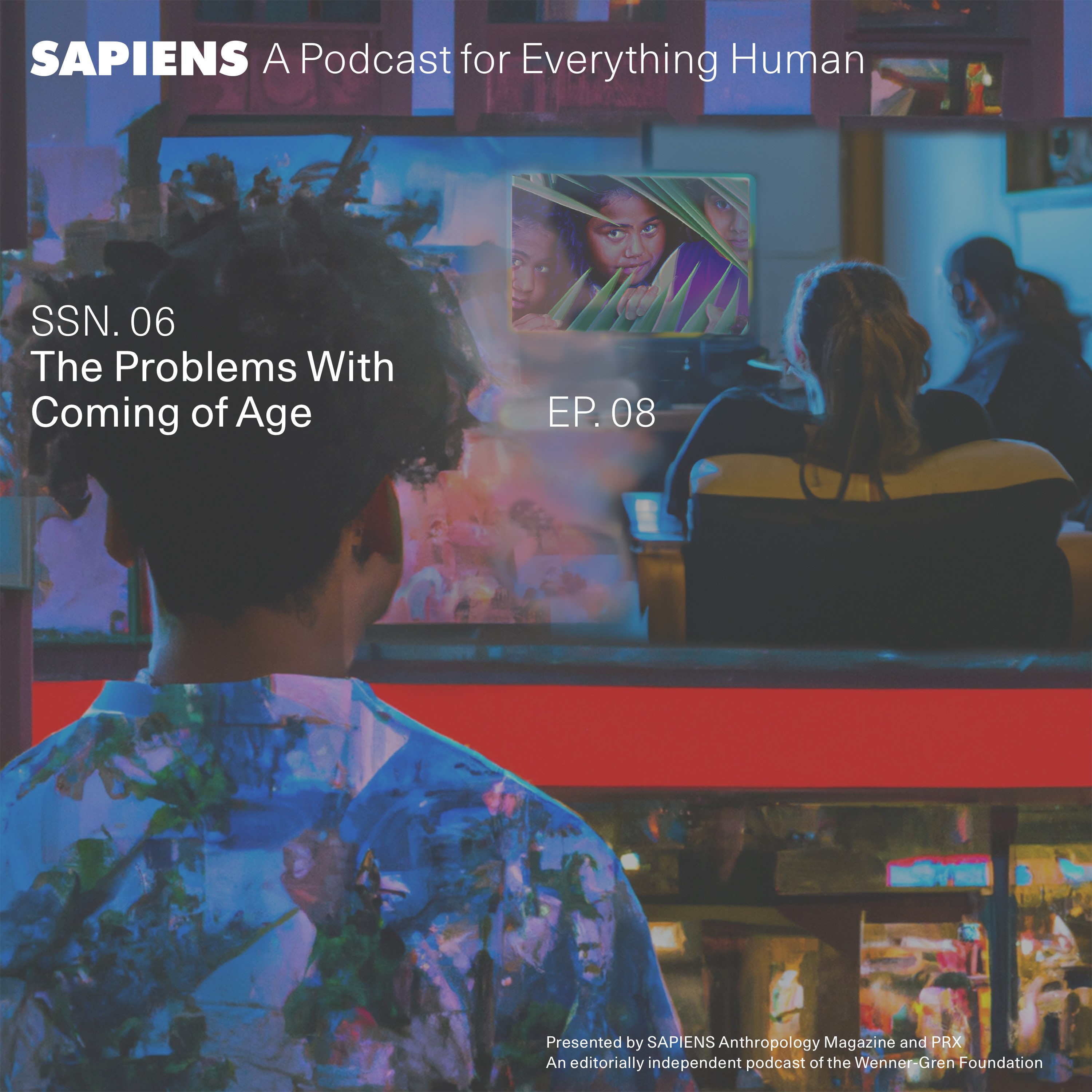
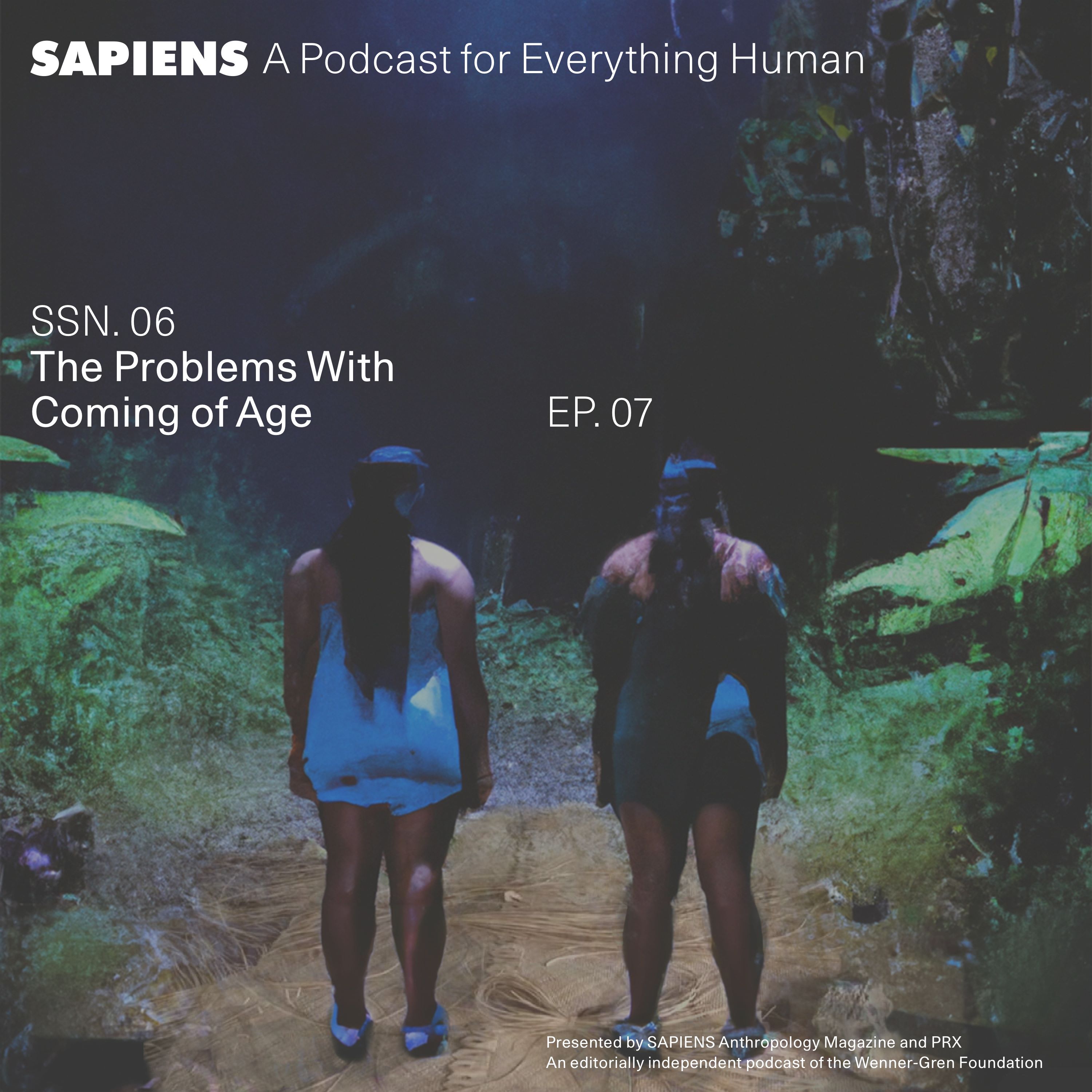
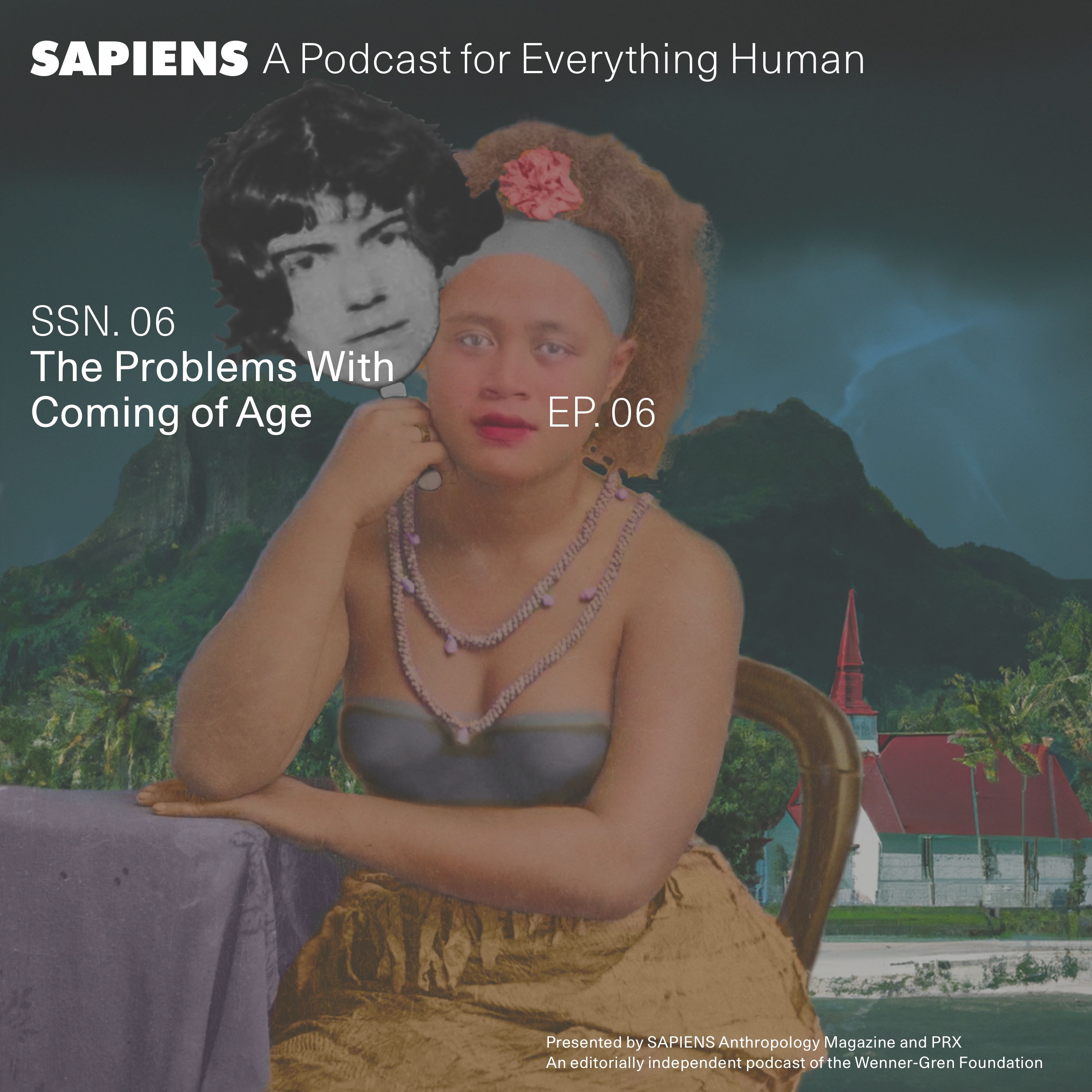
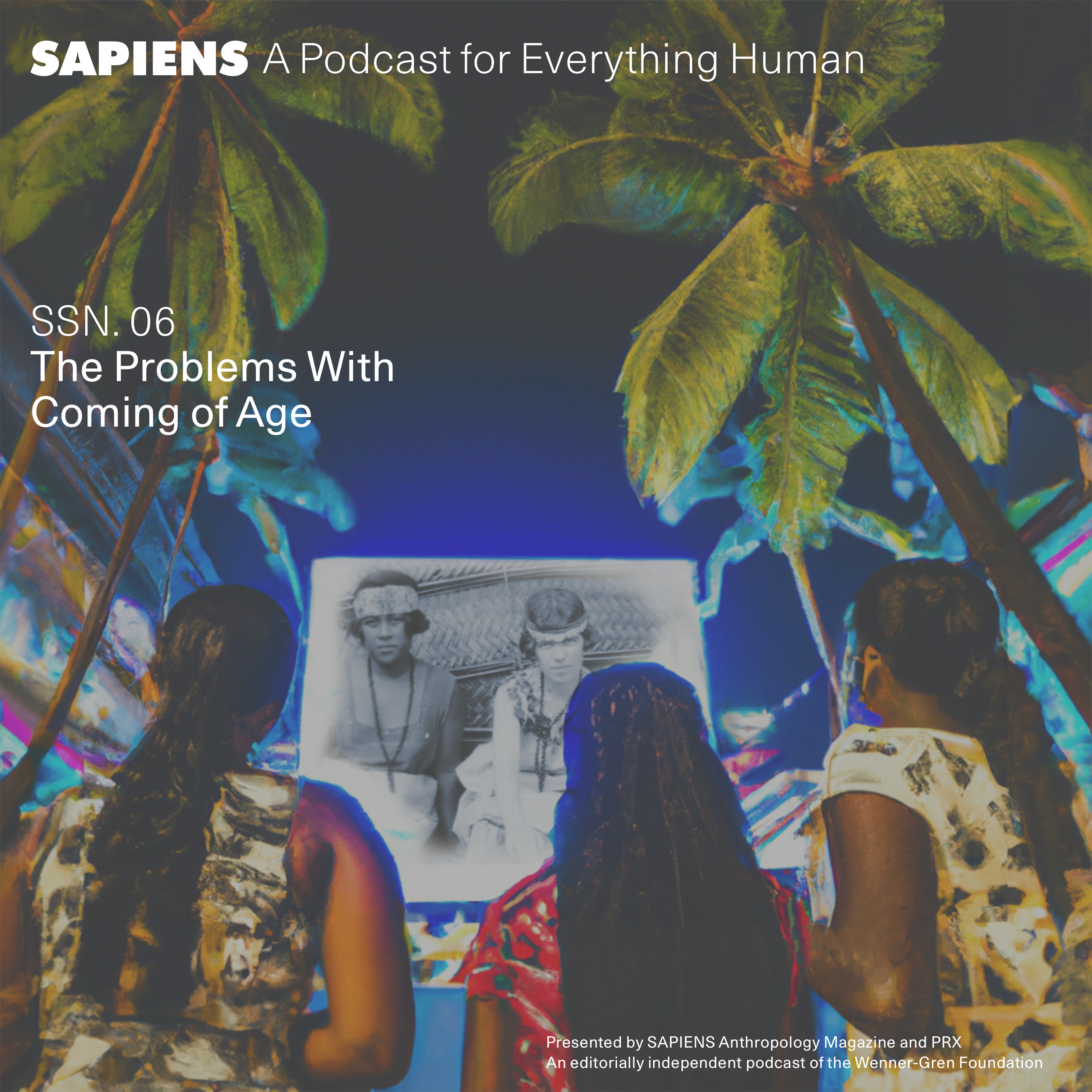

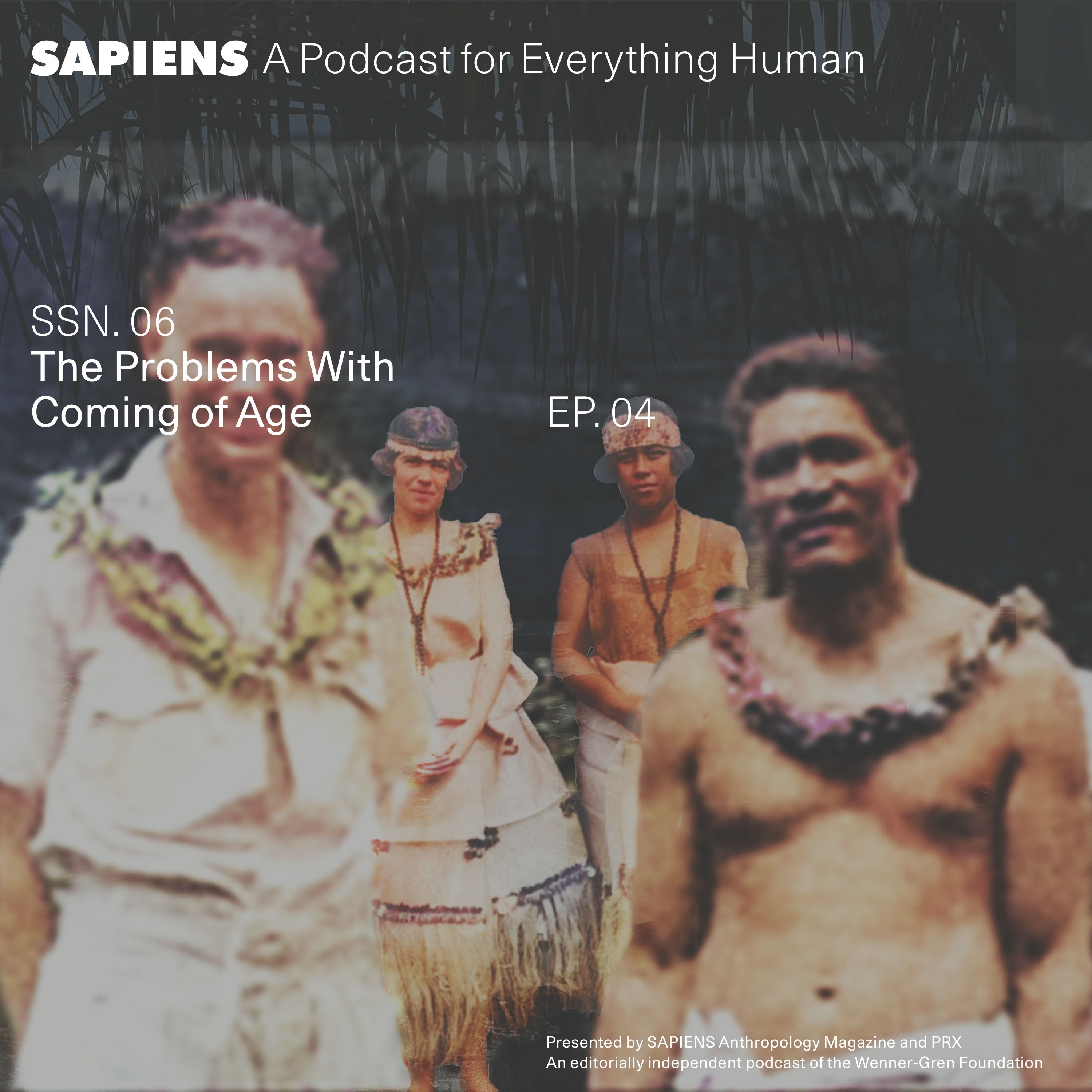

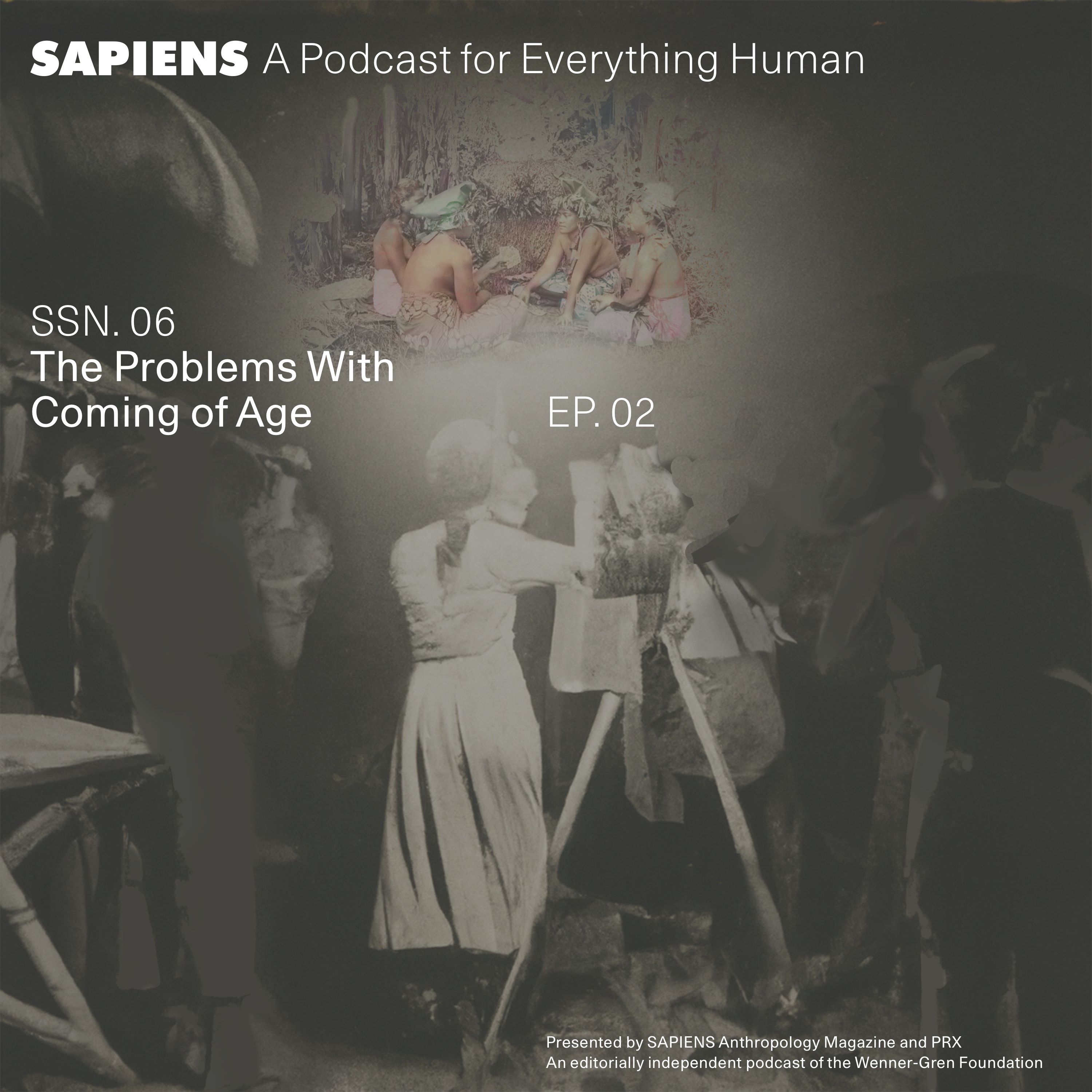


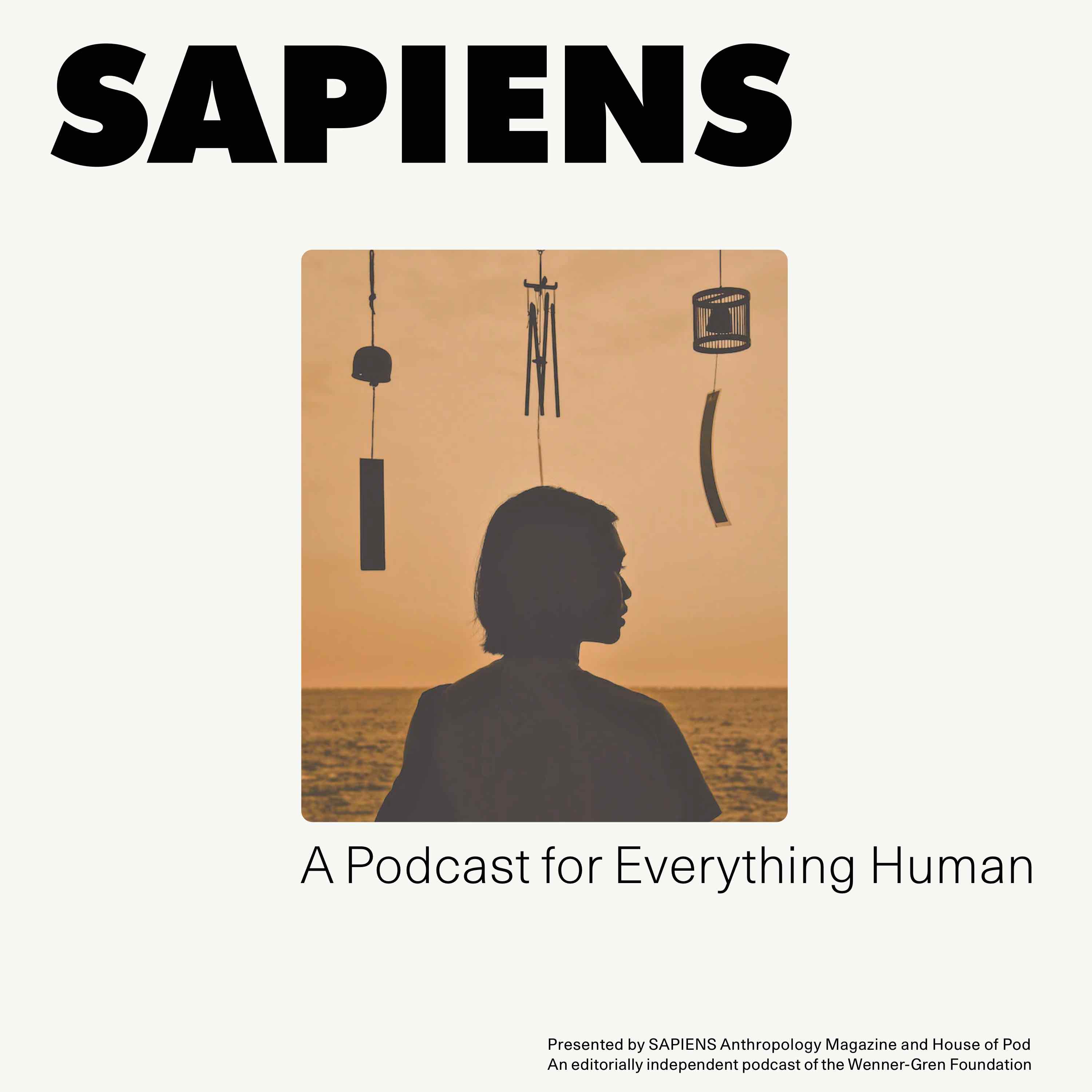

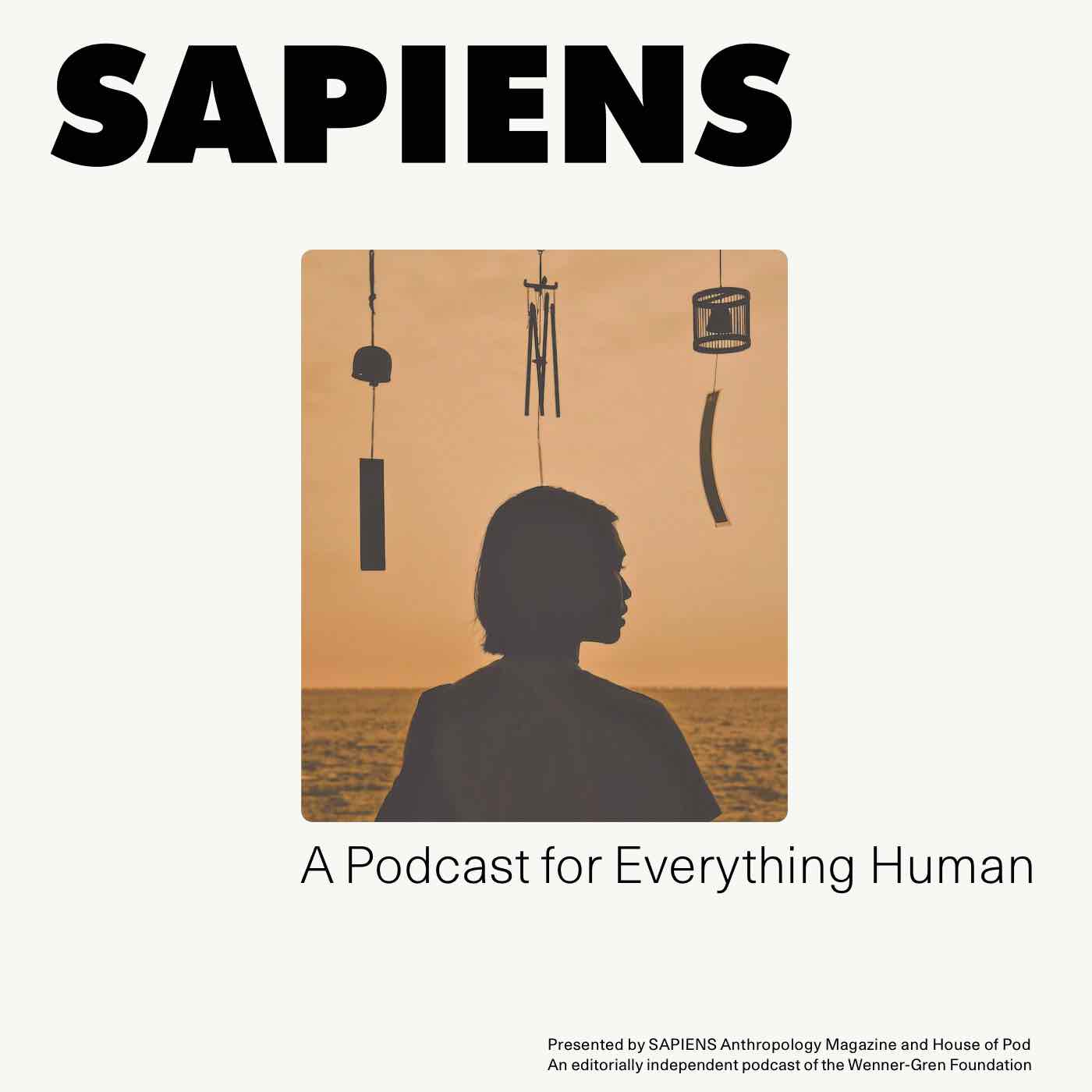










This is nice series. I like hearing castbox when I drive my car. https://burrito-craft.com
Wow, What an excellent post. I actually found this for many informatics. https://burrito-craft.com
Wow, What an excellent post. I actually found this for many informatics. https://burrito-craft.com
The article about is very useful, thank you for sharing! https://games-online.io/
Thanks for sharing your experience!
Wow, What an excellent post. I actually found this for many informatics. That’s what I’m looking for. Affirmation is the best article. Online Games
This is a really great article, I think it's a more special pleasure to listen to it. https://basketballlegends.fun/tap-tap-shots
It looked like a promising trace but 5 yrs later, there's no working mine, let alone a mother lode. So, any follow-up tunnels must've just dead ended or caved in fast...
Awesome blog. I enjoyed reading your articles. This is truly a great read for me. I have bookmarked it and I am looking forward to reading new articles. Keep up the good work! https://stumble-guys.net
This is nice series. I like hearing castbox when I drive my car. https://papaspizzeria.io/
Thanks for the very good episode. 👍👌 And so interesting, on how we all are so interconnected, on this planet.
Do you got "The Covid blues" ? (^^,) Are you hungry in history of baking.? Then this is episode and website for you. "Tavola Mediterranea" look under Menu for more. https://tavolamediterranea.com/2020/08/30/pliny-elder-chickling-vetch-sourdough-bread-starter/ Or have a look see here. (^^,) https://m.youtube.com/channel/UCZ2Z7kfVqccGWAtZN6Scq4g/videos Health
this podcast isnt what it says it is. 2/5